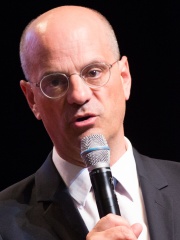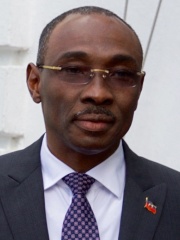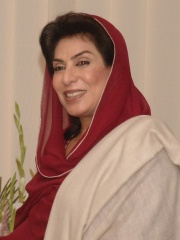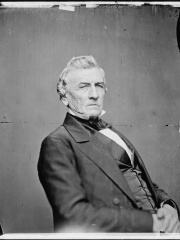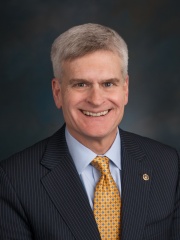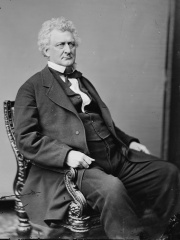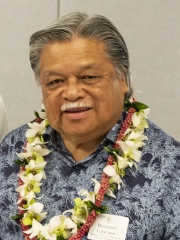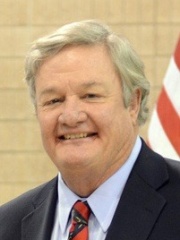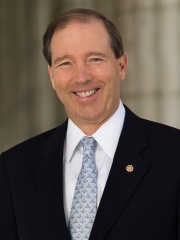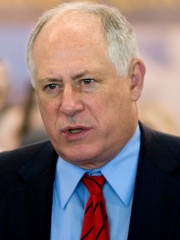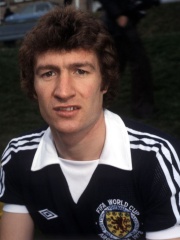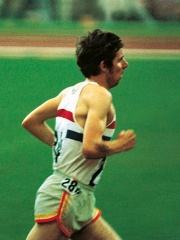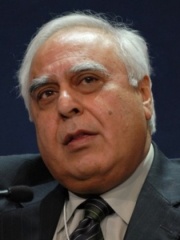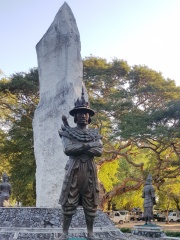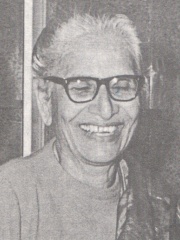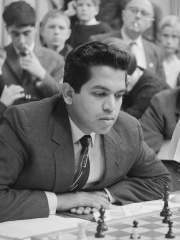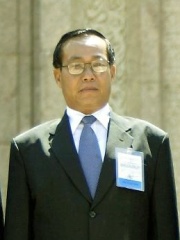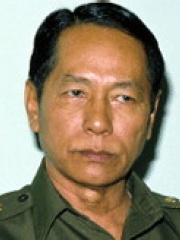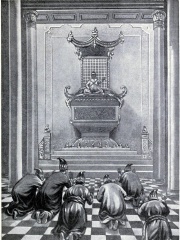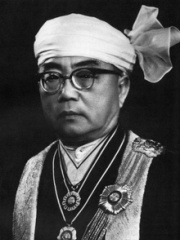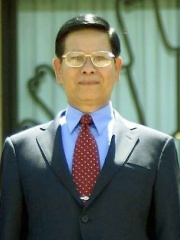POLITICIAN
Prakash Karat
1948 - Today
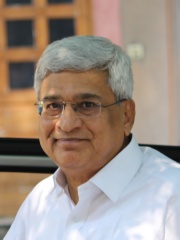
 Prakash Karat
Prakash Karat
Prakash Karat (born 7 February 1948) is an Indian Communist politician. He was the general secretary of the Communist Party of India (Marxist) from 2005 to 2015. He served as interim coordinator of CPI(M) after the death of incumbent General Secretary Sitaram Yechury. Read more on Wikipedia
His biography is available in 17 different languages on Wikipedia. Prakash Karat is the 18,482nd most popular politician (down from 18,286th in 2024), the 41st most popular biography from Myanmar (Burma) (down from 39th in 2019) and the 27th most popular Burmese Politician.
Memorability Metrics
Page views of Prakash Karat by language
Among POLITICIANS
Among politicians, Prakash Karat ranks 18,482 out of 19,576. Before him are Mustapha Adib, Jean-Michel Blanquer, Veronika Skvortsova, Abdelhakim Belhaj, Lena Ek, and Evans Paul. After him are Fahmida Mirza, Benjamin Fitzpatrick, Humza Yousaf, Bill Cassidy, William Allen, and Ben Cayetano.
Most Popular Politicians in Wikipedia
Go to all RankingsMustapha Adib
1972 - Present
HPI: 46.68
Rank: 18,483
Jean-Michel Blanquer
1964 - Present
HPI: 46.68
Rank: 18,484
Veronika Skvortsova
1960 - Present
HPI: 46.68
Rank: 18,485
Abdelhakim Belhaj
1966 - Present
HPI: 46.68
Rank: 18,486
Lena Ek
1958 - Present
HPI: 46.68
Rank: 18,487
Evans Paul
1955 - Present
HPI: 46.67
Rank: 18,488
Prakash Karat
1948 - Present
HPI: 46.66
Rank: 18,489
Fahmida Mirza
1956 - Present
HPI: 46.66
Rank: 18,490
Benjamin Fitzpatrick
1802 - 1869
HPI: 46.66
Rank: 18,491
Humza Yousaf
1985 - Present
HPI: 46.66
Rank: 18,492
Bill Cassidy
1957 - Present
HPI: 46.65
Rank: 18,493
William Allen
1803 - 1879
HPI: 46.65
Rank: 18,494
Ben Cayetano
1939 - Present
HPI: 46.63
Rank: 18,495
Contemporaries
Among people born in 1948, Prakash Karat ranks 768. Before him are Jack Dalrymple, Tom Udall, Pat Quinn, Sandy Jardine, Stephen Turnbull, and Brendan Foster. After him are Nancy Lynch, Kapil Sibal, William M. Daley, Ian Hallam, Steve Wilhite, and Teresa Graves.
Others Born in 1948
Go to all RankingsJack Dalrymple
POLITICIAN
1948 - Present
HPI: 47.16
Rank: 762
Tom Udall
POLITICIAN
1948 - Present
HPI: 47.14
Rank: 763
Pat Quinn
POLITICIAN
1948 - Present
HPI: 47.01
Rank: 764
Sandy Jardine
SOCCER PLAYER
1948 - 2014
HPI: 47.00
Rank: 765
Stephen Turnbull
HISTORIAN
1948 - Present
HPI: 46.95
Rank: 766
Brendan Foster
ATHLETE
1948 - Present
HPI: 46.85
Rank: 767
Prakash Karat
POLITICIAN
1948 - Present
HPI: 46.66
Rank: 768
Nancy Lynch
COMPUTER SCIENTIST
1948 - Present
HPI: 46.52
Rank: 769
Kapil Sibal
POLITICIAN
1948 - Present
HPI: 46.42
Rank: 770
William M. Daley
POLITICIAN
1948 - Present
HPI: 46.33
Rank: 771
Ian Hallam
CYCLIST
1948 - Present
HPI: 46.29
Rank: 772
Steve Wilhite
COMPUTER SCIENTIST
1948 - 2022
HPI: 46.27
Rank: 773
Teresa Graves
ACTOR
1948 - 2002
HPI: 46.22
Rank: 774
In Myanmar (Burma)
Among people born in Myanmar (Burma), Prakash Karat ranks 41 out of 40. Before him are Thae Su Nyein (2007), Maha Bandula (1782), Helen (1938), Irawati Karve (1905), James Wilby (1958), and Manuel Aaron (1935). After him are Razia Sultana (1973), and Ye Tun Naung (1983).
Others born in Myanmar (Burma)
Go to all RankingsThae Su Nyein
MODEL
2007 - Present
HPI: 57.46
Rank: 35
Maha Bandula
MILITARY PERSONNEL
1782 - 1825
HPI: 57.19
Rank: 36
Helen
ACTOR
1938 - Present
HPI: 54.17
Rank: 37
Irawati Karve
WRITER
1905 - 1970
HPI: 53.99
Rank: 38
James Wilby
ACTOR
1958 - Present
HPI: 50.86
Rank: 39
Manuel Aaron
CHESS PLAYER
1935 - Present
HPI: 49.21
Rank: 40
Prakash Karat
POLITICIAN
1948 - Present
HPI: 46.66
Rank: 41
Razia Sultana
LAWYER
1973 - Present
HPI: 39.37
Rank: 42
Ye Tun Naung
ATHLETE
1983 - Present
HPI: 0.00
Rank: 43
Among POLITICIANS In Myanmar (Burma)
Among politicians born in Myanmar (Burma), Prakash Karat ranks 27. Before him are Soe Win (1947), Saw Maung (1928), Bagyidaw (1784), Sao Shwe Thaik (1896), San Yu (1918), and Khin Nyunt (1939).
Soe Win
1947 - 2007
HPI: 61.41
Rank: 21
Saw Maung
1928 - 1997
HPI: 60.25
Rank: 22
Bagyidaw
1784 - 1846
HPI: 58.97
Rank: 23
Sao Shwe Thaik
1896 - 1962
HPI: 58.37
Rank: 24
San Yu
1918 - 1996
HPI: 58.12
Rank: 25
Khin Nyunt
1939 - Present
HPI: 57.46
Rank: 26
Prakash Karat
1948 - Present
HPI: 46.66
Rank: 27

